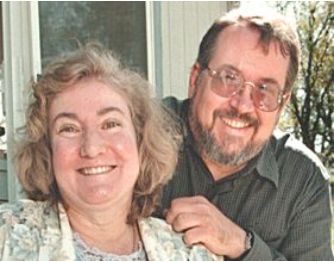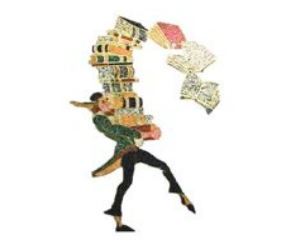This is another older article – but perhaps still relevant – while times change, and we like to think that the great “recession” is behind us, one thing is constant: making a living as a bookseller is both a joy and a challenge:
USED BOOKSELLING IN THE RECESSION
by Chris Volk
When I (as the vice president of IOBA – Independent Online Booksellers Association) was asked by a reporter if there were any statistics on how the recession was affecting sales for used booksellers, I said that reports are mostly anecdotal – but I offered to run a quick and rather impromptu survey. The questions focused on simply sales – up or down – during the January and February of 2009 vs the sames months in 2008 and 2007, and in order to put these figures in context, I asked a few basic questions about whether or not the sellers also had an open store, number of employees, years as a bookseller, and the average selling price of their books.
Forty-eight booksellers took the time to reply. While their experiences ranged from one extreme to to the other, I think overall there were enough replies for a few trends to emerge.
In the general comments, I found the level of confidence expressed quite amazing – even those sellers whose sales were down and who expected the downturn to continue still commented in this vein:
“Everyday I feel like I’m challenged to find new ways to be able to continue earning a living in the field I love. I am working more hours for less profit and cannot imagine what other profession I would enter at this stage of my life.” or
“sales seemed to turn downward with the economy. It makes us dig into our resourcefulness to try to figure out different ways to increase our sales, cut our costs, and just plain survive. Adapt. Hold on. We hope that a more robust market isn’t too terribly far away.”
SURVEY RESULTS
Based on this brief summary, selling used books might be less affected than many other businesses by the downturn in the economy, but it is not a “recession-proof” industry. For most of the booksellers who replied, business had been increasing year-over-year through the beginning of 2008; since most were experienced sellers, the most significant factor causing this decline in sales is presumably the overall economy. While we were just looking at a narrow window of two months, several sellers commented that the decline was worse in February, paralleling the fall in the stock markets and the increases in unemployment.
48 booksellers participated in the survey, representing 20 states, Canada and the UK – 11 sellers were from California, 5 from New York. Not all sellers answered all questions, although most did.
Approximately 2/3rds of the sellers responding were members of IOBA.
The sellers who answered were overwhelmingly small businesses: only 11% had 3 or more employees (including the owner as an employee). They also had a significant amount of experience – 91% had been working 5 or more years as booksellers, 73% for 10 or more years. 91% were full-time booksellers.
23% had open stores; the rest were primarily online sellers, although some also did book fairs, mailed out catalogues or were open by appointment. For those who did have open stores, the amount of business generated by the store vs online ranged from 10% to 95% for the store.
61% of the sellers had an average sales price in the $10-40 range
27% of the sellers had an average sales price of $40-100,
8% of the sellers had an average sales price of over $100 and only 4% had an average of $10 and under.
MEDIAN
The median response was a loss of 10% in 2009 over 2008, and a loss of 5% in 2009 over 2007. In other words, the median decrease between Jan-Feb 2007 and 2009 (a period of 14 months) was 15%.
for those sellers with an average sales price in the $10-40 range, the median decline from 2008 to 2009 was 4%; for those sellers with an average sales price in the $40-100 range, the median decline from 2008 to 2009 was 20%.
the median number of years in the business was 11.
AVERAGES
change in $$ sales between 2009 and 2008 -10.6%
change in $$ sales between 2009 and 2007 +.4%
(the majority of sellers had an increase between 2007 and 2008)
for those selling books with an average sales price of $10-40, the 2009 vs 2008 decrease was 7.1% , for those selling books with an average sales price of $40-100, the decrease was 18.7% and for those selling the most expensive books, it was 18.5%.
number of years as a bookseller : 13. Those selling books in the $40-100 range – that is, the group which appears to have experienced the largest year-over-year decline – are the most experienced with an average of 15 years.
number of employees (counting self as 1) – 1.5
RANGE
change in $$ sales between 2009 and 2008 ranged from a decrease of 66% to an increase of 100%
change in $$ sales between 2009 and 2007 ranged from a decrease of 75% to an increase of 135%
years of experience ranged from 1.5 to 32 years
number of employees ranged from .5 for a part-time bookseller to 26, but 58% only had one employee, 23% had 1.5 to 2 employees
54% of booksellers responding reported a decrease in 2009 from 2008, 9% no change and 37% an increase
51% of booksellers responding reported a decrease in 2009 from 2007, 3% no change and 46% an increase


